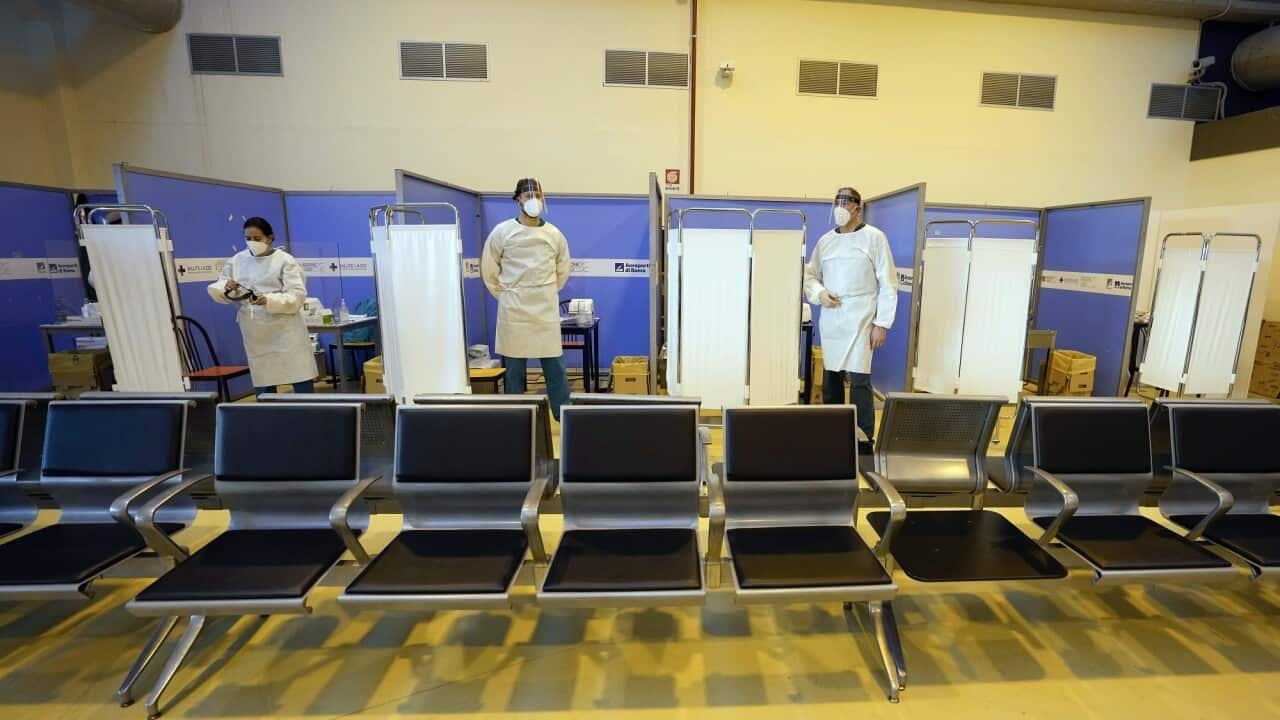KEY POINTS
- China says travel curbs imposed by some nations are 'discriminatory'.
- South Korea has joined other nations in imposing tougher testing requirements on arrivals from China.
- Scientists and health officials are urging more resources for genetic sequencing of new COVID-19 variants.
Chinese state media criticised the decision by countries to impose mandatory COVID-19 tests for travellers from China who are now allowed to travel overseas for the first time since the pandemic began.
State-run tabloid Global Times called the restrictions "unfounded" and "discriminatory" in an article late on Thursday.
"The real intention is to sabotage China's three years of COVID-19 control efforts and attack the country's system," it said.
Having kept its borders all but shut for three years, imposing a strict regime of lockdowns and relentless testing, China abruptly reversed course toward living with the virus on 7 December. The case numbers reported by Beijing has sharply increased.
Share the data, WHO urges China at COVID-19 surge talks
The World Health Organization met Chinese officials for talks on Friday about the surge in COVID-19 cases, urging them to share real-time data so other countries can respond effectively.
The rise in infections in China has triggered concern around the globe and questions about its data reporting, with low official figures on cases and deaths despite some hospitals and morgues being overwhelmed.
The talks came after WHO chief Tedros Adhanom Ghebreyesus urged Beijing to be more forthcoming on the pandemic situation in the world's most populous country.
The UN health agency said the meeting was "to seek further information on the situation, and to offer WHO's expertise and further support."
"WHO again asked for regular sharing of specific and real-time data on the epidemiological situation -- including more genetic sequencing data, data on disease impact including hospitalisations, intensive care unit admissions and deaths," it said.
UK, France add to COVID-19 restrictions on Chinese travellers
The UK became the latest country to impose tougher COVID-19 testing requirements on arrivals from China
Starting on 5 January, Chinese travellers will need to show a negative COVID-19 test taken no more than two days prior to departure, the UK's Department of Health and Social Care said in a statement.
France, too, will require travellers from China to provide a negative COVID-19 test result less than 48 hours before departure, the health and transport ministries said on Friday.
From 1 January, France will also carry out random PCR COVID tests upon arrival on some travellers coming from China, a government official told reporters.
Also, a negative PCR test is required from travellers from China both before and after arrival in South Korea.
The US, Italy, Japan, Taiwan, India and Malaysia have announced their own measures in a bid to avoid importing new variants from China.
The European Union's health agency said Thursday it believed the EU-wide introduction of mandatory COVID screenings for travellers from China was currently "unjustified".
In Italy, the first European country to be hit by COVID-19 in early 2020, the government said early results from its stricter screening of Chinese visitors since Wednesday has not detected any new coronavirus variants.
Those who have tested positive so far are carriers of "Omicron variants already present in Italy", Ms Meloni told her end-of-year press conference.
Ms Meloni said the screening was likely to be less effective than if it was being done on a European level, as only people arriving on direct flights from China were being tested, not those with stopovers.
Italian Health Minister Orazio Schillaci said she would be pushing for the EU to roll out bloc-wide screening.
What do we know about new COVID-19 variants?
Epidemiologist Angela Webster said Australia might need to reinstate routine PCR testing for COVID-19 to ensure new concerning variants aren't emerging.
"There have been strong calls for China to be much more transparent about what's going on," she told ABC TV.
"There could be new variants in China rapidly circulating, and therefore potentially spreading to the rest of the world, that we are unprepared for and we haven't been able to learn much about before it happens."
She said it would be important to assess the impact the virus is having during the holiday period.
Xu Wenbo, head of the virus control institute at China's Centre for Disease Control and Prevention, said last week that hospitals across the country would collect samples from patients and upload the sequencing information to a new national database, allowing authorities to monitor possible new strains in real-time.
More than 130 Omicron sublineages have been newly detected in China over the last three months, he told journalists.
The BA.5.2 and BF.7 remain the main Omicron strains, although other variants that have spread to the US and Europe in recent months have also been identified. They include XXB, BQ.1 and their sublineages.
LISTEN TO

China prepares to open its borders next month
SBS News
28/12/202203:51
Antoine Flahault, director of the Institute of Global Health at the University of Geneva, told AFP that each new infection increased the chance the virus would mutate.
He said "a soup" of more than 500 new Omicron subvariants had been identified in recent months, although it had often been difficult to tell where each had first emerged.
"Any variants, when more transmissible than the previous dominant ones - such as BQ.1, B2.75.2, XBB, CH.1, or BF.7 - definitely represent threats, since they can cause new waves," he said.
"However, none of these known variants seems to exhibit any particular new risks of more severe symptoms to our knowledge, although that might happen with new variants in the coming future."












